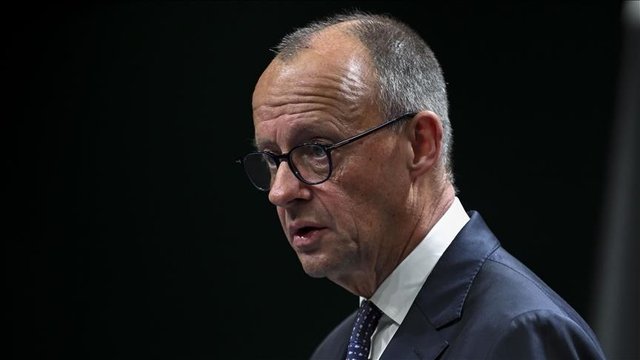Germany says Ukraine will receive long-range missiles

German Chancellor Friedrich Merz confirmed on Wednesday that Ukraine would be provided with long-range missile systems, although he declined to provide details on their quantity and delivery dates, Anadolu Ajansi news agency has reported.
"For several months, we have been working intensively with the Ukrainian government on the implementation of projects for long-range systems, as we technically call them. The Ukrainian army will be equipped with such weapons systems," Merz said at a joint press conference with Swedish Prime Minister Ulf Kristersson in Berlin.
Asked about Germany’s previous reluctance to supply Ukraine with Taurus long-range cruise missiles, Merz declined to provide details, calling the approach a tactic to increase pressure on Russia.
"We have agreed that we will no longer discuss the details publicly, as we believe that some ambiguity is necessary, especially for the Russian side, regarding the scope of our military support in this area. I can only say that we are doing everything possible to equip the Ukrainian army with weapons systems that have the appropriate range. And this will continue in the coming weeks and months, if necessary, up to the production of such weapons systems in Ukraine itself," Merz said.
Merz accused Russia of deliberately targeting Ukraine’s civilian energy infrastructure on the eve of a harsh winter, calling it a "terrorist war against the civilian population." He pledged continued European support for strengthening Ukraine’s air defenses and said Germany would provide an additional EUR 3 billion in military aid next year.
Merz also expressed hope that EU leaders would reach an agreement next month on using frozen Russian assets to provide financial support to Ukraine.
"This is our strongest lever to bring Moscow to the negotiating table and end this terrible war in the long term," he stressed.
Regarding reports that the Trump administration is quietly working on a peace plan with Russia to end the war in Ukraine, Merz did not provide any details, but said he did not expect significant progress in the near future.
"We are in close daily contact with the US administration, including our advisers, to determine whether we can develop a plan. But at the moment it is not possible to predict whether this will lead to a result in the short term," Merz said.
"Nevertheless, the German government and my personal staff are in daily contact with the US administration on this issue," he added.








